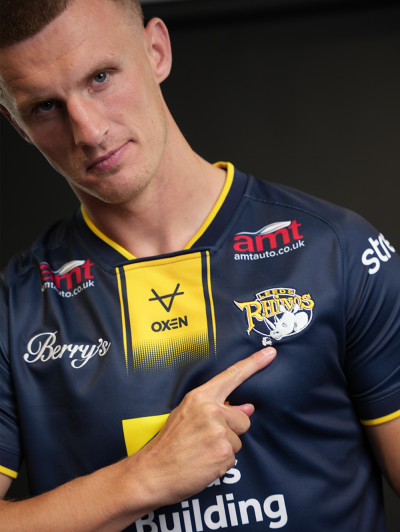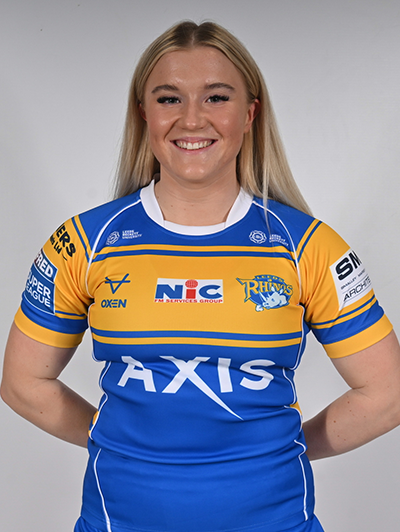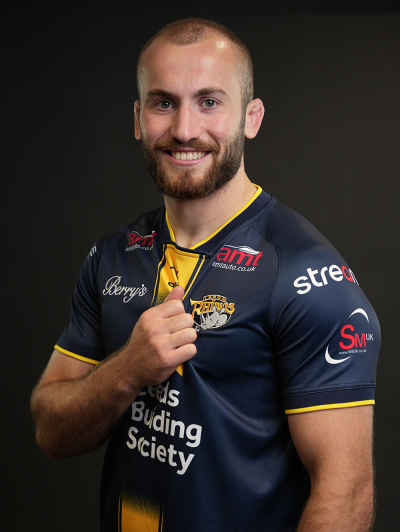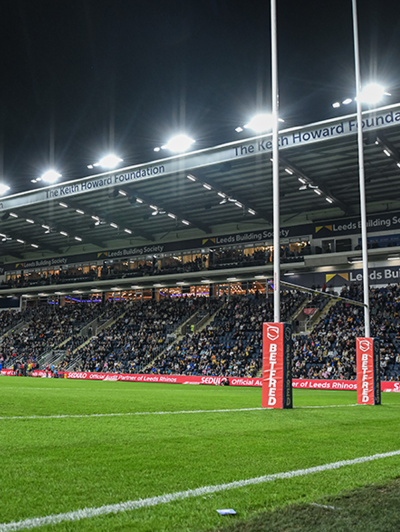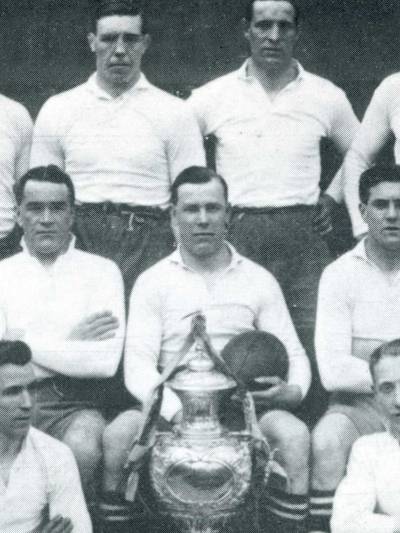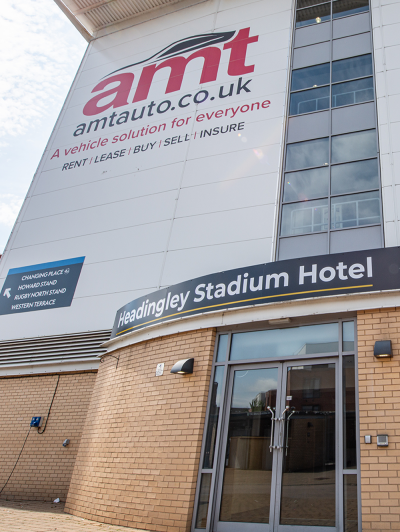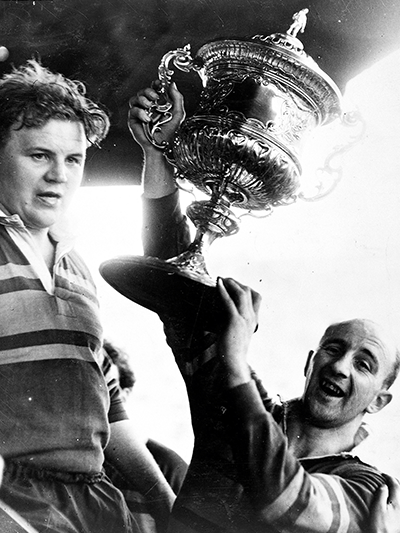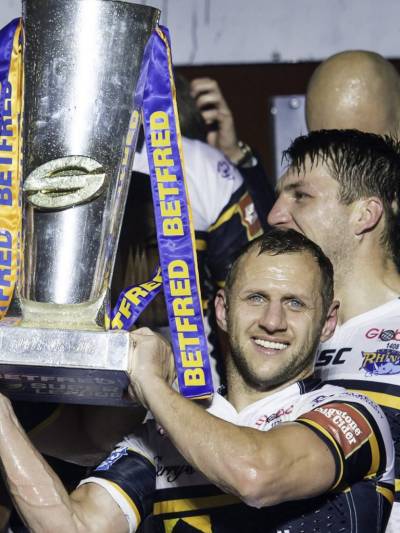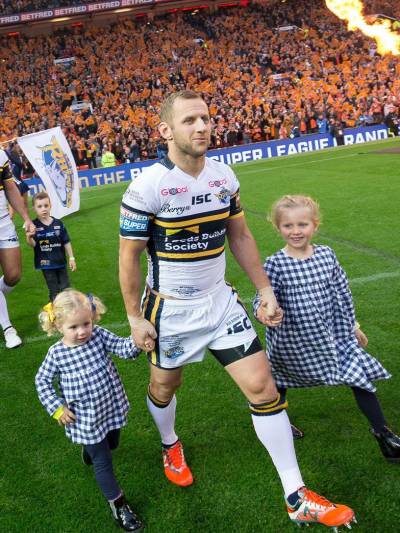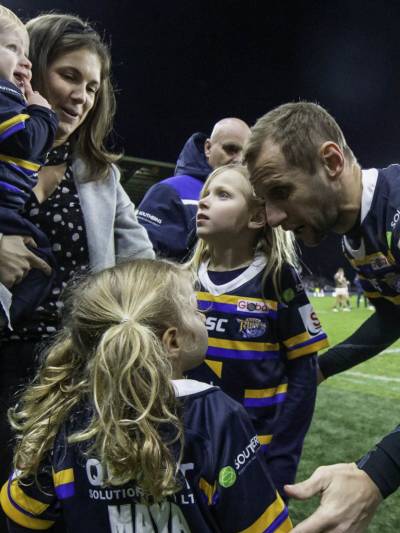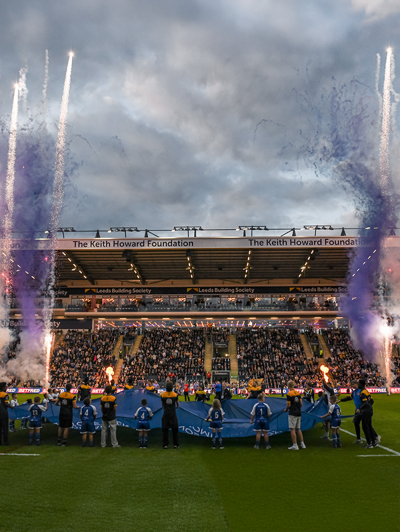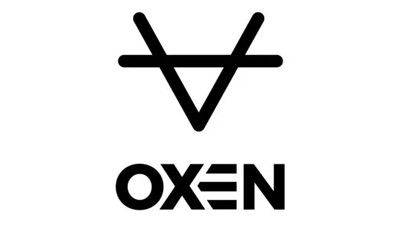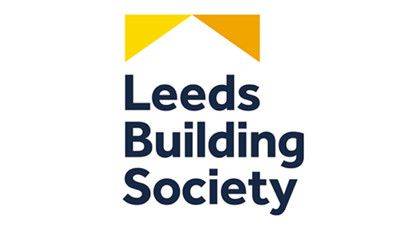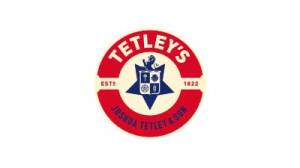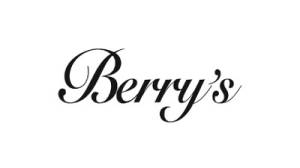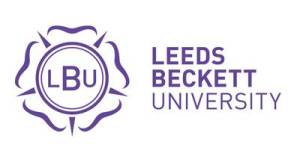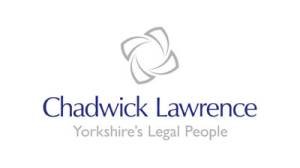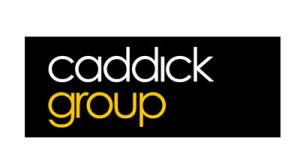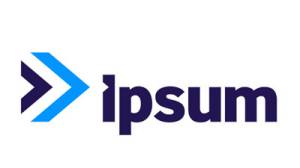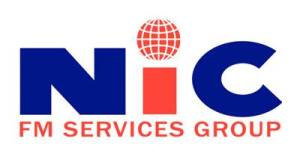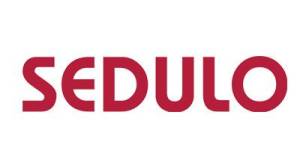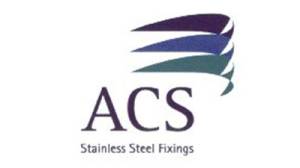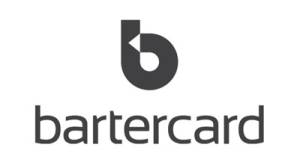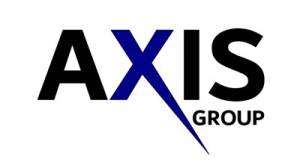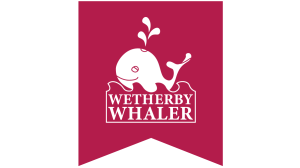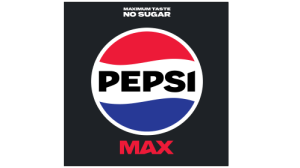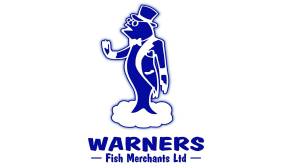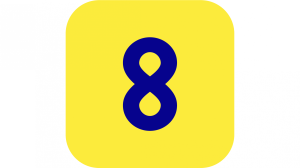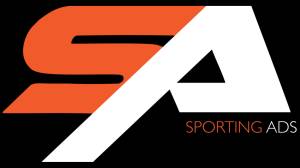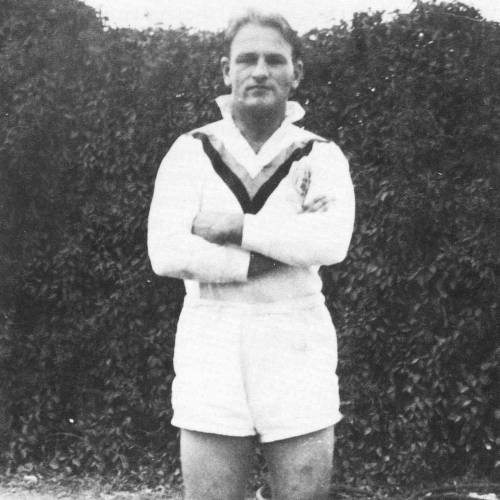
Legend:
Ike Owens
- Position: Loose Forward
- Heritage number: 703
- DOB: 1918-11-07
- Honours: Great Britain; Wales
Debut: Vs Wakefield Trinity (H) 4th September 1943
Leeds Honours: Challenge Cup (Finalist: 1947), Yorkshire Cup (Finalist: 1947-48)
Born at Pontycymmer in South Wales on 7th November 1918, and made aware of his rugby heritage at Garw Secondary School, where he was a contemporary of Dews bury's Harry Royal, Ike played for his village team as a 16-year-old before setting out on a well-trodden path, no less determined than Ulysses to strive, to seek, to find and not to yield .. . Maesteg ... Aberavon ... Glamorgan County ... Welsh trials ... Alas, only to be foiled by Armageddon and have to make do in 1940 with a couple of war-time internationals versus England at Cardiff Arms Park and Gloucester.
It's an ill wind ... even in war(!), for he was destined to serve in the R.A.F. as a Sergeant-Instructor in No 1 Parachuting School at Manchester's Ringway, the selfsame unit as Cliff Evans, and needed little persuading to try his luck with Leeds. Try his luck, indeed! He proceeded to illumine the Headingley scene even during the desperately dark days of 1943-45, though over the two seasons he was able to turn out on only seventeen occasions, including a R.L. debut for Wales versus England at Central Park. Nor was his unavailability surprising in the light of service commitments, his log book revealing that apart from making 196 descents in his capacity as instructor, he took part in 15 operational missions, concerned in the main with support for the Resistance. It is worthy of note that exemplary service was marked by an exceptional award, the Air Force Medal being normally the exclusive preserve of aircrew personnel for gallantry and devotion to duty.
Gallant in war, no less chivalrous in peace! And something of a sensation, too, for despite being restricted to just 22 appearances in 1945-46, his brilliant handling, phenomenal speed off the mark and electrifying cut-through put him in a class of his own on attack, with his hard-as-nails defensive capabilities no less impressive. So that, for all the Loiners were rarely in the limelight (to put it mildly!), Ike's selection, along with Dai Jenkins, as one of Gus Risman's 'Indomitables' for the 1946 Tour of Australasia was never really in any doubt.
Neither was the verdict of friend and foe alike! Thrilling the Australian crowds with his exciting, hard-ground running, and universally acclaimed as the outstanding success of the Tour, he played in eighteen of the twenty-seven matches, including all four Tests, scored 11 tries and kicked four goals. As for his comparative inexperience around the scrum, he quickly dispelled any concern on that account, the Owens-McCue-Horne triangle developing into a crucial match-winning factor.
To be honoured with the club captaincy immediately on his return was certainly no sinecure appointment, the Loiners having already lost all but one of their first five matches, but he responded to the challenge as only he could, leading from the front so successfully that his men developed an aura of invincibility during the R.L. Cup campaign, conceding not a single point en route to Wembley, yet only for their cohesion and sense of togetherness to desert them against Bradford Northern in the Final.
Sadly, frustration was to be the name of the game in 1947-48, too, the nearest the Loiners got to any honours being a one-point defeat at the hands of Trinity in a Yorkshire Cup Final replay, but Ike continued to play as only he could. A man of steel, if ever there was one, what a thrill it was to watch this intrepid No 13, with the inimitable forward tilt, zooming in at top speed to clash head-on with a cast-iron defence, yet invariably emerge unscathed, and more often than not with his pace only momentarily checked, if at all.
Twenty tries he scored in the season. All the greater, therefore, was the dismay the following October when the management finally acceded to his persistent requests to be put on the open-to-transfer list.
Possibly flattered, as well as staggered, by Castleford's readiness to meet a record fee of £2,750, Ike may have agreed to join the Wheldon Road club against his better judgment. At all events, he played just seven games in amber and black before Huddersfield stepped in to sign him for precisely the same figure on 18th January 1949, on the understanding, ironically enough, that he would be willing to partner Cumbrian Bob Nicholson in the second row, with Dave Valentine at loose-forward. What did the number on the jersey matter?
What, indeed! Fit and durable as ever, the 30-year-old's all-action involvement was a constant source of inspiration for the men in claret and gold in four Finals: League Championship winners in 1948-49, and runners-up in 1949-50; Yorkshire Cup runners-up in 1949, and winners in 1950.
Moreover, had he permitted his name to go forward for consideration, there is every possibility that he would have toured Down Under for a second time in 1950, for he was playing as well as ever. By April 1952, however, he felt it was time to call it a day, and headed back to the valleys, but was tempted north on a free, transfering January 1954, to give York the benefit of his experience and, as it turned out, settle in the city, for the most part as a Licensee (shades of the Town Hall Tavern!).
And there he is still, in retirement, with time to recall the highlights of his career. A couple of R.U. internationals, the Tour in 1946, four Tests, twelve R.L. internationals, six Finals, Wembley.
